I got invited to an exclusive media discussion on the topic Female Sexual Dysfunction (FSD). One of the event’s key resource persons was no less than the renowned sexual therapist and psychologist Dr. Margarita Holmes. You would probably recognize her from her advice column on Rappler.
The press release invitation immediately caught my interest, as I am all too aware of the problem of FSD. Hearing about it brought me back to this one time I was playing a game of “Never Have I Ever” with my former officemates. You know that game where someone asks a question, and you are supposed to take a shot of alcoholic drink if your response is on the positive? The questions are usually along the lines of “Never have I ever experienced a three-some.” You take a shot if you have actually experienced having a three-some (No, no one drank to this. hahah!). Much like Truth or Consequence games, the conversation can get pretty personal.
And so there we were, getting drunk as the game advanced, and getting a little too personal. My officemates suddenly started talking about this lubricant they passed around. I was shocked because some of them were pretty much my age. I was like, “Why would you need a lubricant?” I was looking around hoping to find someone who would express as much shock as I did. All I got were blank looks. I realized then that it was quite a common problem. And I do remember my female officemates talking about how they have to push themselves to have sex with their husbands (or their husbands do the pushing), because they do not really enjoy it. A pretty sad picture they painted.
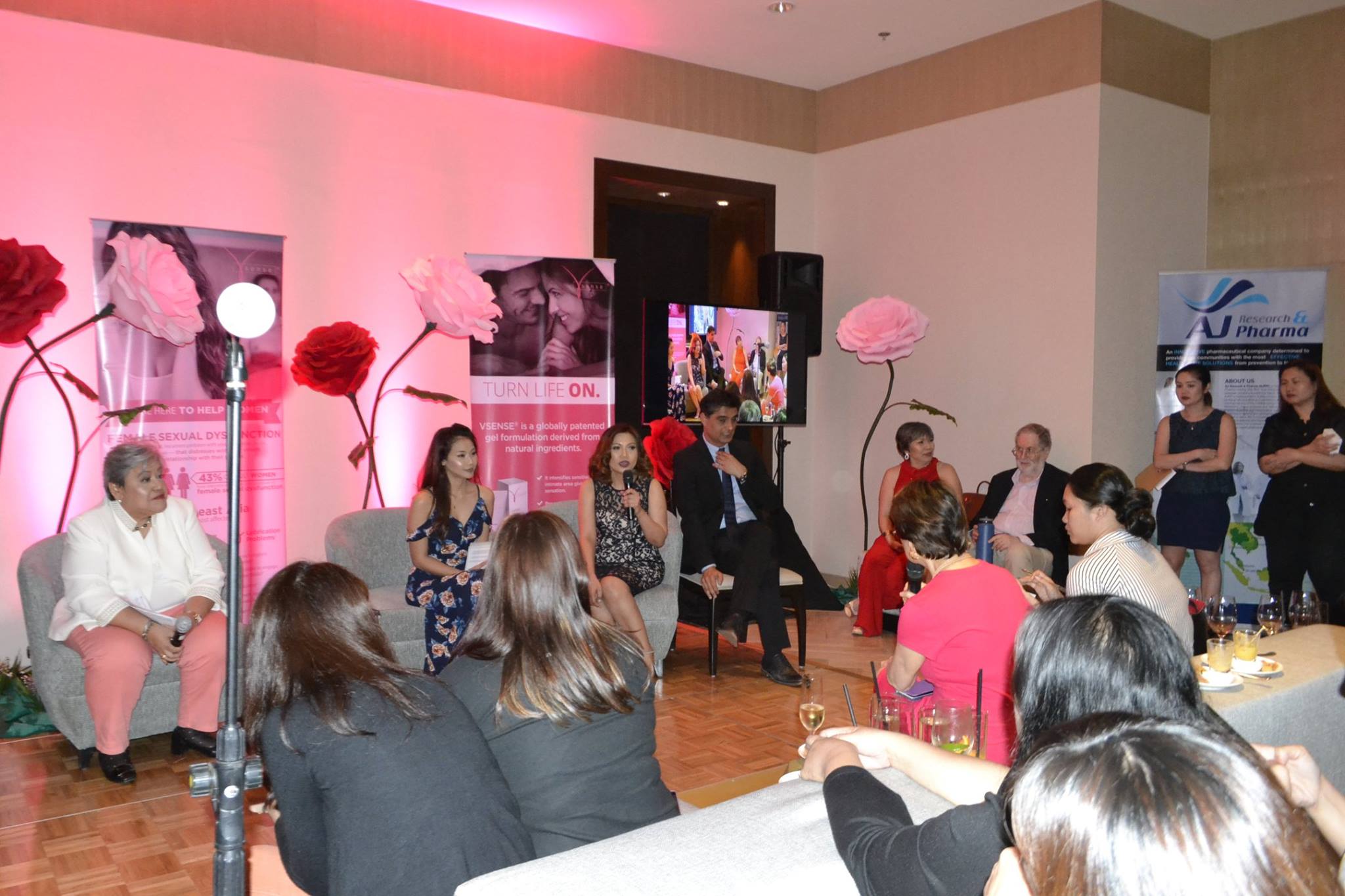
And so I eagerly went to the event, curious about how they would approach the topic. When I arrived at the venue, Dr. Holmes was already doing her talk, discussing the psychological implications of FSD. She was followed by Dr. Ditas Decena, an Obstetrician gynecologist, who discussed the physiological side of the issue. The CEO and Senior Product Manager for AJ Research & Pharma Inc., Javed Mohammad and Pinky Ferrer respectively, also graced the event.
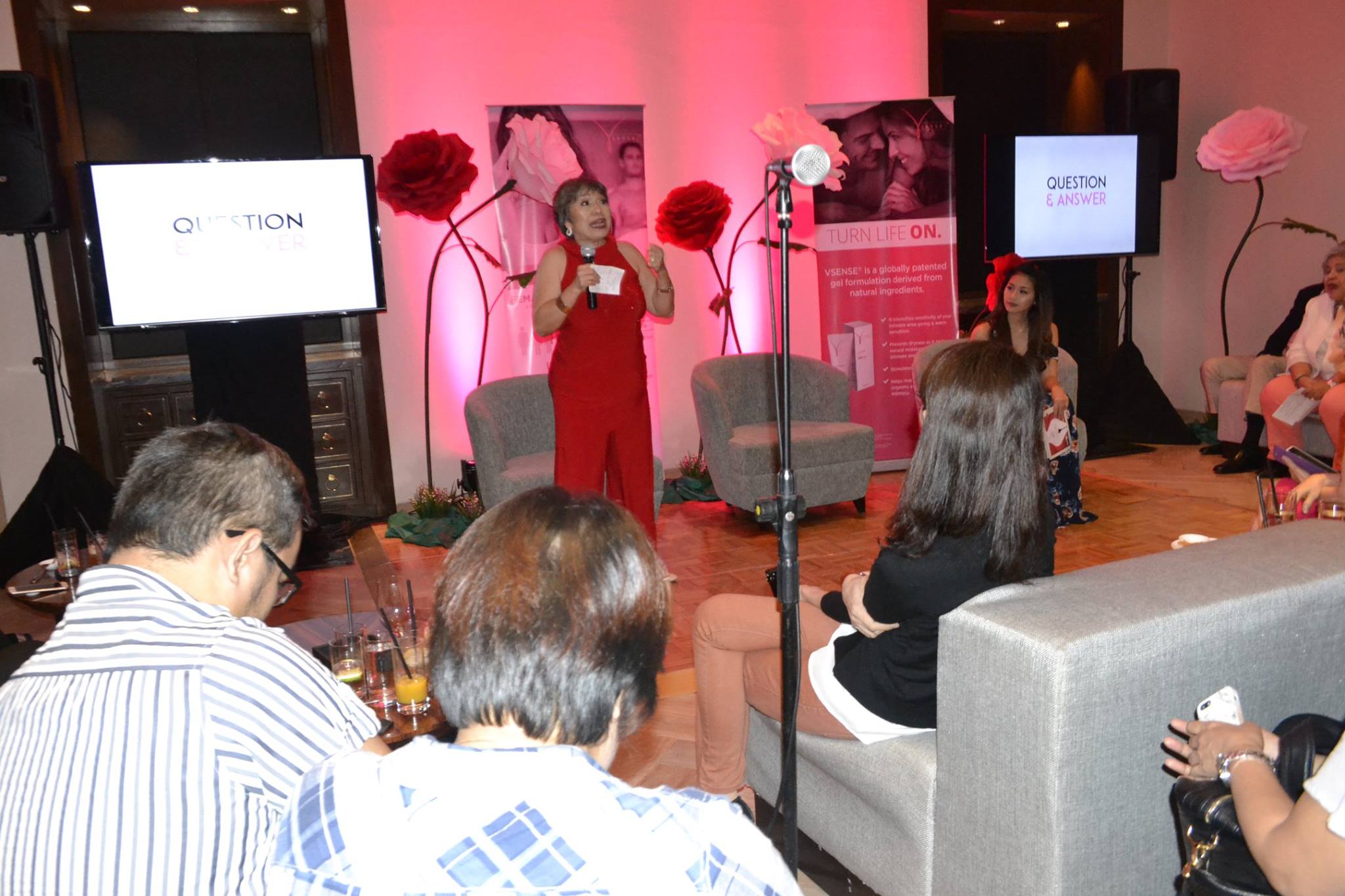
The Problem
Female Sexual Dysfunction pertains to recurrent, persistent problems with desire, orgasm, or sexual response. It is a silent burden women all over the world suffer from, and a condition they themselves are often unaware of. It is often ignored or overlooked mostly because our society still frowns upon the idea of women owning up to their sexuality.
There is also this virulent belief that women are not entitled to sexual pleasure … that it deems them sinful and dirty. This belief finds its worst manifestation in damaging traditions like Female Genital Mutilation (FGM). Also known as female circumcision, FGM refers to the ritual removal of some or all parts of the external female genitalia. It is commonly conducted by a traditional circumciser using a blade. It is meant to remove all capacities for experiencing sexual pleasure.
The practice finds its roots in gender inequality, attempts to control the sexuality of women, and beliefs about modesty, purity and beauty. Affected women end up suffering a myriad of health effects, including recurrent infections, chronic pain, difficulty passing menstrual flow and urinating, development of cysts, complications during childbirth, inability to get pregnant, and fatal bleeding. Too big a price to pay for subscribing to limited beliefs. Although many societies do not subjugate women on a level as horrendous as this, the same gender discrimination is widespread nonetheless, albeit manifested in less malignant but still hurtful ways.
In these modern times, male-centric relationships still exist. Women are expected to submit to men’s sexual advances even if they don’t feel like it, stressing the belief that men are naturally given to carnal desires and that women have the responsibility to fill this “need”. In dynamics like this, women’s desires are placed on the backburner. Worse, they are deemed shameful, even sinful, if they have their own proclivities to sexual pleasure.
Some women internalize these beliefs a little too deeply and end up encountering almost irreversible problems with intimacy. This is what happened to Lauren Meeks who found out after her wedding that she was incapable of having normal sex with her husband. After a week of pain and tears and frustration at her honeymoon, she was diagnosed with Vaginismus. This means she experiences involuntary contractions of the pelvic muscles, making sex extremely painful or even impossible.
The great news is that more and more progressive thinkers have come to view women as “people” who are entitled to their own sexuality. After all, they are every bit as human as any man. This opens the door for more discussions on the topic of FSD.

How FSD Affects Relationships
“The reality is that FSD not only affects the individual physically, but emotionally and socially. It strains her relationship with her partner, and a dissatisfied disposition negatively impacts interactions at home and at work in general,” explains Pinky Ferrer, Senior Product Manager at AJ Research & Pharma.
One-sided dynamics can put a strain on relationships. A woman who is forced to do things that she dislikes may harbor resentment. And this resentment can manifest in ways that hurt the otherwise harmonious interaction between the couple. Sometimes it also creates unwanted power dynamics. Case in point, a woman may end up subjugating the man, demanding that he does certain things for her in exchange for sexual “favors” she does for him. This implies that having sex is a burden for her. This should not be the case, as sex should be an amazing experience for both partners.
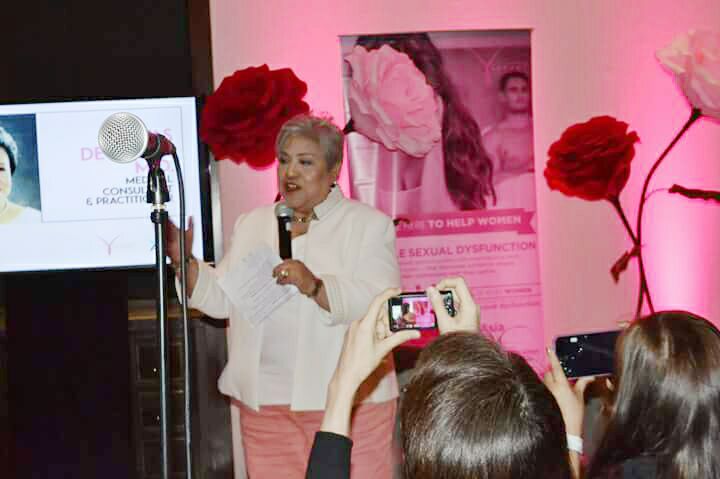
A Closer Look at FSD
According to data, FSD affects 43% of adult women. Symptoms include low desire to engage in sex, inability to achieve orgasm, difficulty with arousal or sexual response, and physical conditions such as pain and poor vaginal lubrication. While these conditions are often associated with menopause among older women, FSD can happen at any age or stage in life. Women often ignore these symptoms, leading to more serious physical manifestations, as well as deeper social and emotional dissatisfaction.
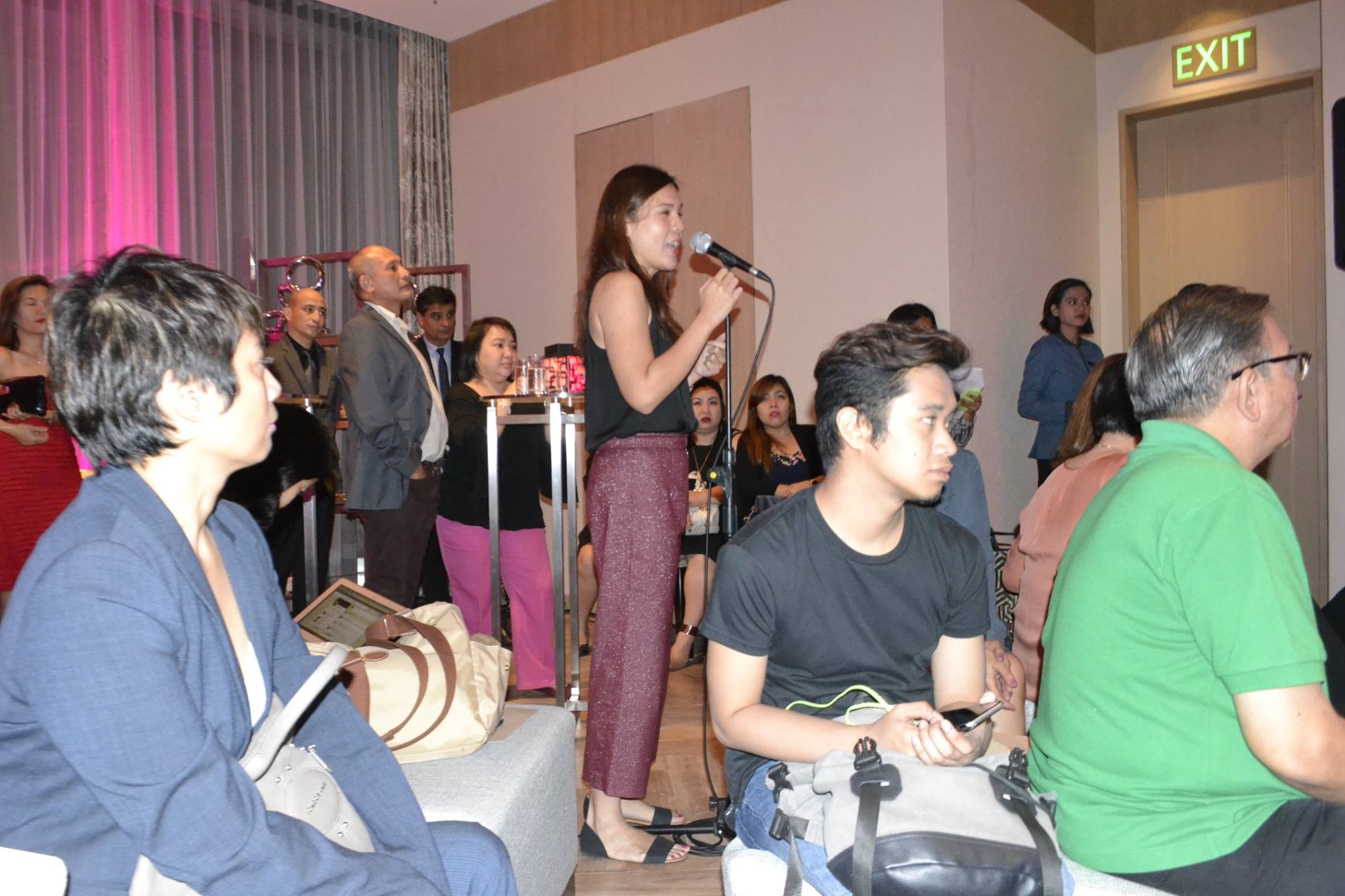
How to Address the Problem
The good news is that the condition is easy to address, provided there is proper guidance from a health professional. Medical treatments that involve hormone therapy are sometimes prescribed to patients who have underlying medical conditions, but these may come with undesirable side effects and risks, and will have to be taken under the guidance of a doctor.
There are, however, nonmedical treatments and lifestyle hacks women can undertake to overcome FSD, including the following:
Open Communication. One key way to overcome FSD is by understanding your own body and sexual needs. This way, you would know what it is that you want or that pleases you.
You should also be able to foster healthy dialogues with your significant other or sexual partner. Develop a system of communication that enhances intimacy on both emotional and physical levels.
As Dr. Margie Holmes herself explained, men can be clueless in bed. Some do not know what women want and are unable to properly prep their partner so the experience can actually be enjoyable for her (for many women, foreplay is necessary). This is why open communication is important.
Counseling. Tap the guidance of a medical professional or psychologist for efficient and effective self-awareness and communication exercises, tools and techniques.
Healthy Living. A lifestyle centered on health and wellness can greatly enhance your sexual well-being. For one, experts advise that you limit your alcohol intake as it can dampen your sexual responsiveness. Engaging in regular exercise and physical activities can also increase stamina as they elevate your mood and eliminate stress.
Devices and Topical Gel. Women are encouraged to use devices that boost sexual stimulation and arousal. Topical products like lubricants can also help treat dryness and pain during intercourse, albeit they only provide temporary solution to vaginal dryness.
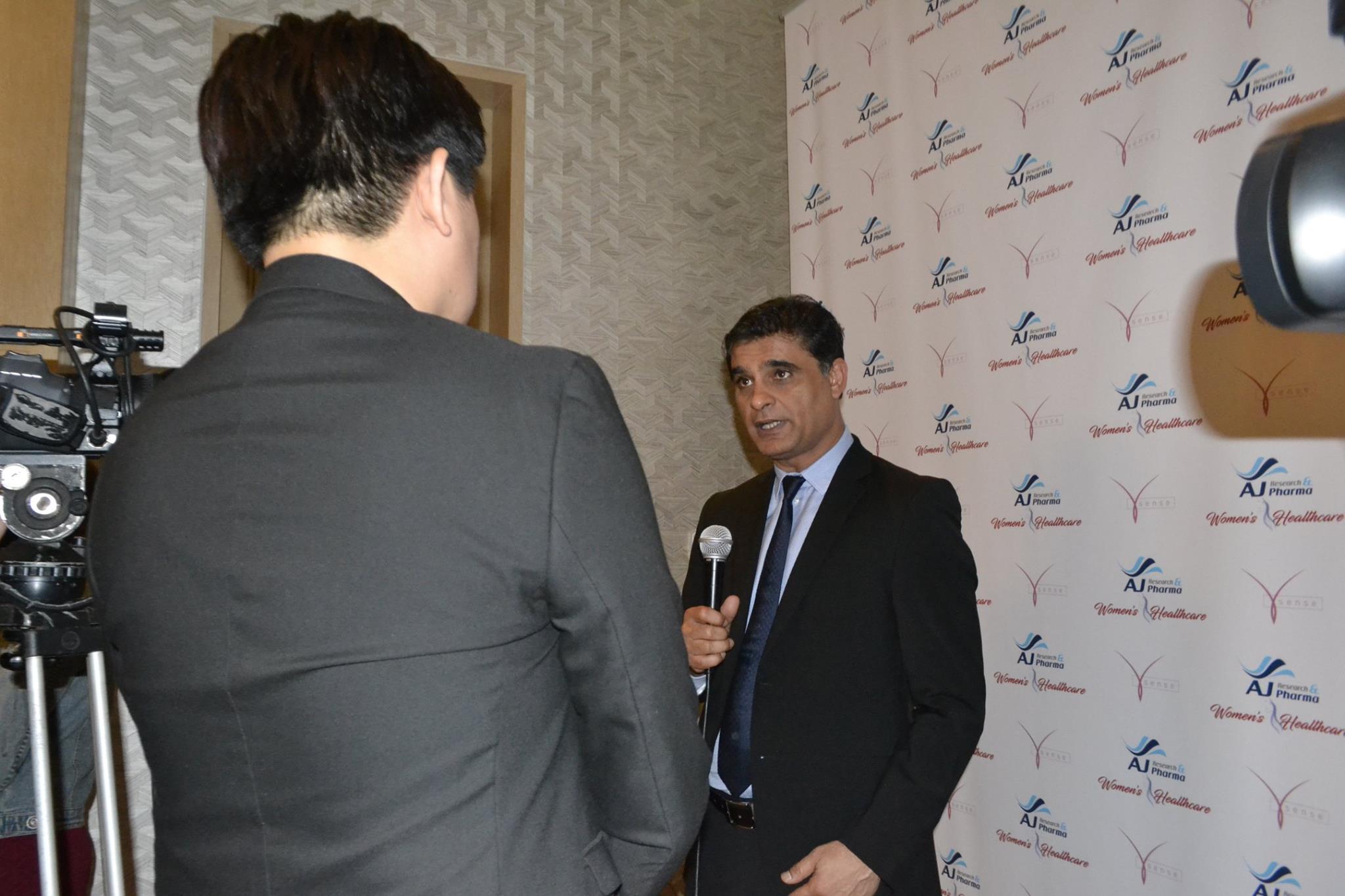
An Innovative Solution
AJ Research & Pharma introduced an innovative feminine intimacy product that I personally find worth endorsing. Called VSENSE, it’s a gel that restores natural moisture in women’s intimate area. More than just artificially lubricating your intimate area, it actually helps you produce natural moisture. Just the way you are supposed to react down there. 😉 VSENSE intensifies vaginal sensitivity, helping women reach pleasurable orgasm. Sounds awesome, right? Developed in Italy, VSENSE is a special patented formulation that uses only natural ingredients extracted from plants like visnadine.
“With VSENSE, we aim to encourage women to make it a habit to take care of their intimate health and well-being,” says Javed Ghulam Mohammad, CEO of AJ Research & Pharma.
“It is high time that women get over the stigma of being sexually aware or in touch with their intimate needs,” adds Ferrer. “VSENSE helps empower women to address FSD and improve their overall well-being by improving their sexual health.”
AJ Research & Pharma has officially launched VSENSE intimate gel in the Philippine market, targeting a segment of feminine intimate products that has yet to be tapped.
It’s high time women take control of their pleasure and satisfaction, and overcome Female Sexual Dysfunction (FSD). It is time to TURN LIFE ON!
Visit the official websites of VSENSE and AJ Research & Pharma to learn more.


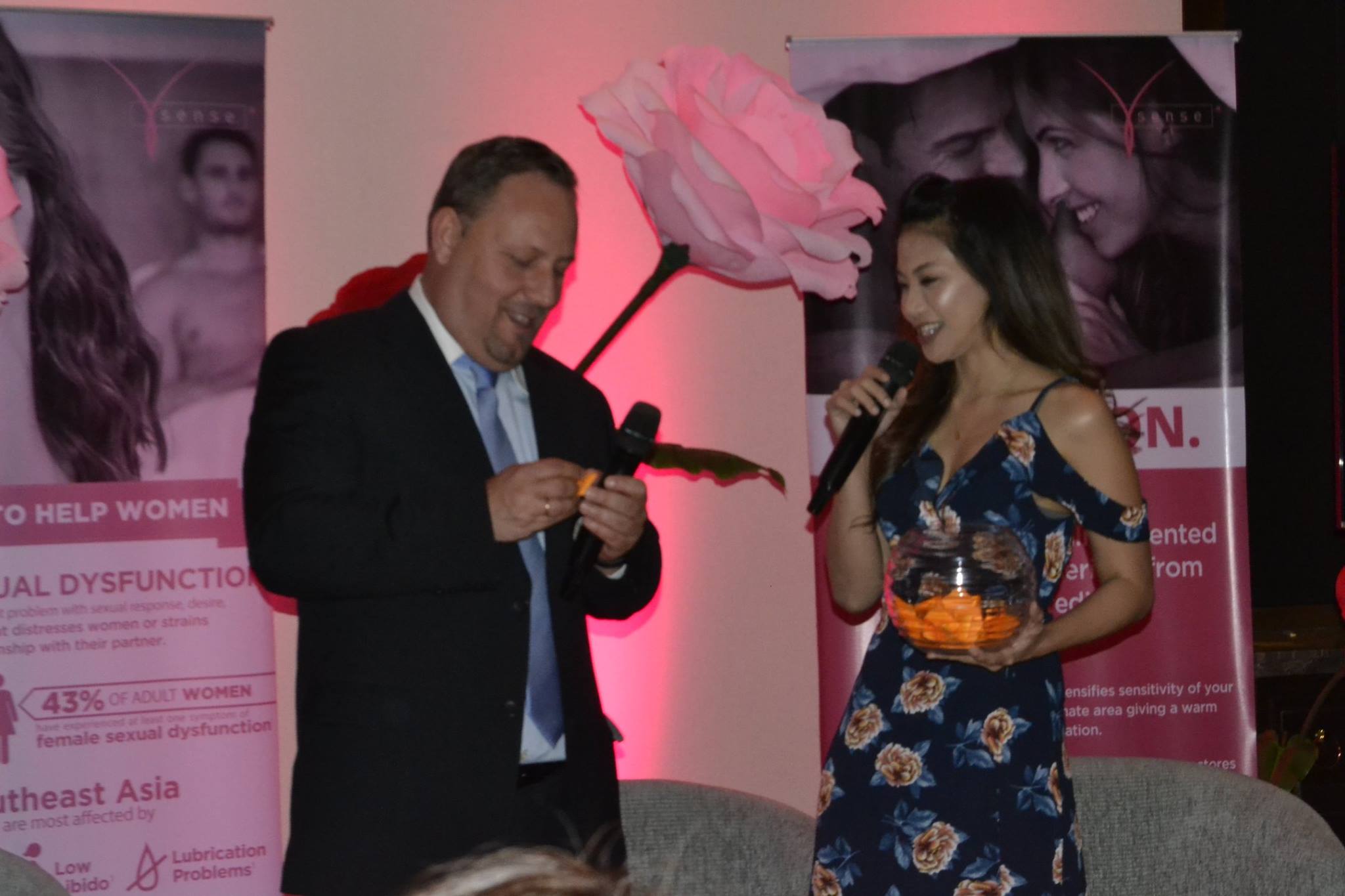
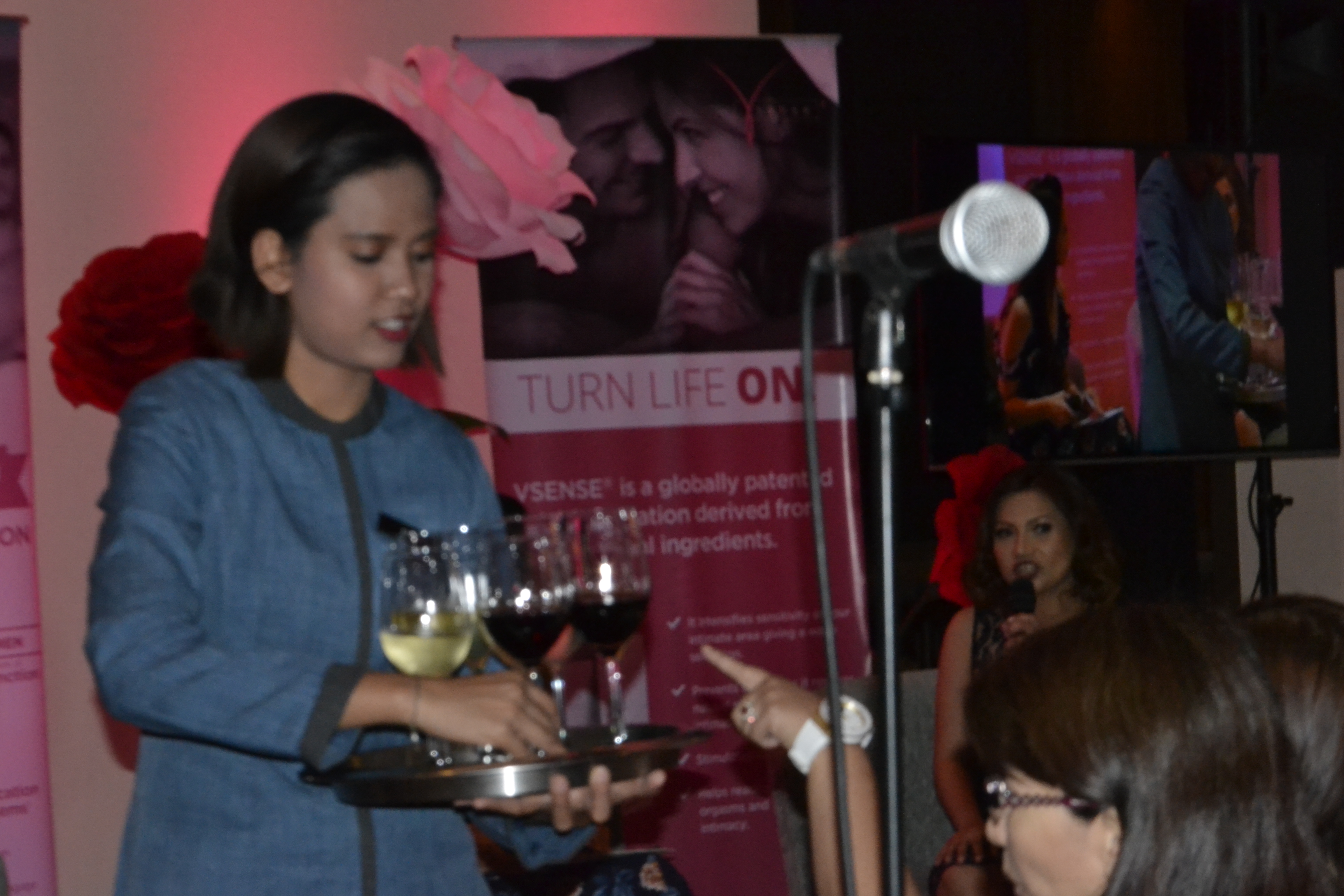



![]() Connect with Urban Ponder! Awesome deals and informative articles await you. Don’t forget to share this! 🙂
Connect with Urban Ponder! Awesome deals and informative articles await you. Don’t forget to share this! 🙂
Author: Tahna de Veyra
Voracious eater. Coffee dependent. Book sniffer. Music addict. Profound thinker. Certified ambivert. Life-hungry maverick. Nonchalant realist. Hesitant blogger.

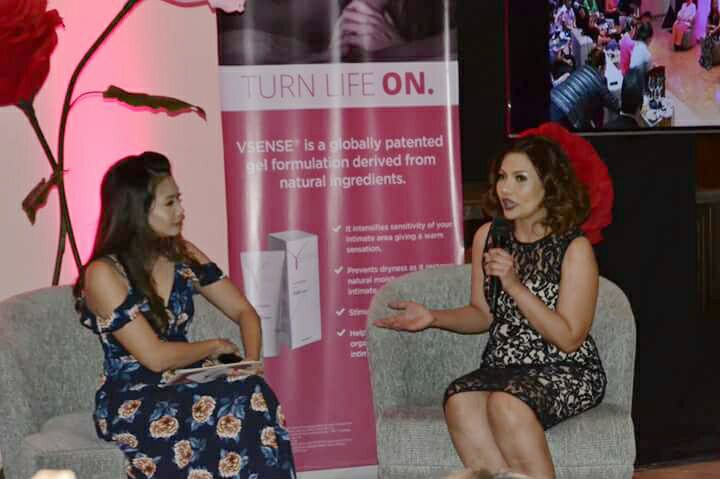
Thanks for the further explanation about FSD. That was a great event, an opening to the eye of every women that such “problem” do exist. The problem in our society in the Philippines, is that sex is something you shouldn’t talk about (especially as a woman), so there’s no way you can address your problem. I’m glad there is an event like this. And thank you for this post!
This looks like this was a very empowering experience.
The more we open up to each other and have honest discussions about sensitive subject, the better our society will become.
Appreciate the fact in taking initiatives and discussing the topic at a bigger scale.
good to know.thanks for sharing
You must be honored to be part of this awareness campaign for women. Keep sharing relevant issues 🙂
You are doing a great job, thanks.
Hope you get success empowering women.
Found this very informative, I know many people who are going through this but are not aware of it, great read!
Nice!
This is so interesting. I’d have loved to be at the talk
This so empowering. I guess I’ve been lucky because I was alway a rebel. And this part of your post really resonated with me “The great news is that more and more progressive thinkers have come to view women as “people” who are entitled to their own sexuality.”
so did you end up taking that shot when asked about the threesome? :/
But seriously, I think later on in marriages, people give up on each other and need to find a way to spark the passion. Health plays a big factor.
Very informative and eye opening post.As you say, its important such things become addressable with a sexologist or a counsellor rather than silently taking ‘lubricant therapy’. It helps no one!
Thanks for this!
You are doing a amazing job, thanks for sharing
I really love your blog but… I am dyslexic. Do you have you tube videos on the subject? it is like you wrote the book on it or something.
Very empowering discussion
It is true that when it comes to sex, it is mostly a man’s fantasy rather than a woman’s that is talked about. While there are enough discussions about erectile dysfunction etc, no one seems to give a thought to what women might be missing out. I think more meetings like this are necessary in all parts of the world.
Much to my embarassment… this whole topic is actually all new to me. I had no idea.. Interesting read for sure! Now I have a lot to process.
Wow!! What a great and informative post!! I honestly didn’t even know there was such a thing!
Wow looks like a great celebration!
Such an important topic to discuss especially in cultures that deem women’s sexuality as something to be ashamed of. I’m happy to hear there’s a new product out there now that help women naturally. I hope this makes it to the global market. Thanks for spreading awareness about this.
This may sound embarrassing but I honestly didn’t know, such a problem existed among women… I knew it did for men. It’s so good that you have a Good open platform to address this issue .
I definitely never heard of this before reading your article. I definitely suffered this in the past with a partner, so it was eye-opening and I will be on the lookout for symptoms when I start dating again!
Great article. 43% is so high! I think trying to open coversations about female sexuality is taking steps in the right direction
I had never heard of this disorder before. Super interesting! I grew up in a “wait until marriage” environment (which I actually did! 🙂 ), and I will admit that it was very hard to go from “no no no no” to “hey, this is ok – enjoy it!” It’s not like you can flip a switch. I think awareness and proper education is key! 🙂
To be honest, I haven’t heard of this condition and found this article very interesting. The impact of gender inequality has so many layers of negative impact. I think it is important to create awareness about such a sensitive topic and the research and available treatment is something all women should know about.
My partner and I spoke of this the other day and how it needed more awareness. We’ll done for addressing an little spoke of subject x